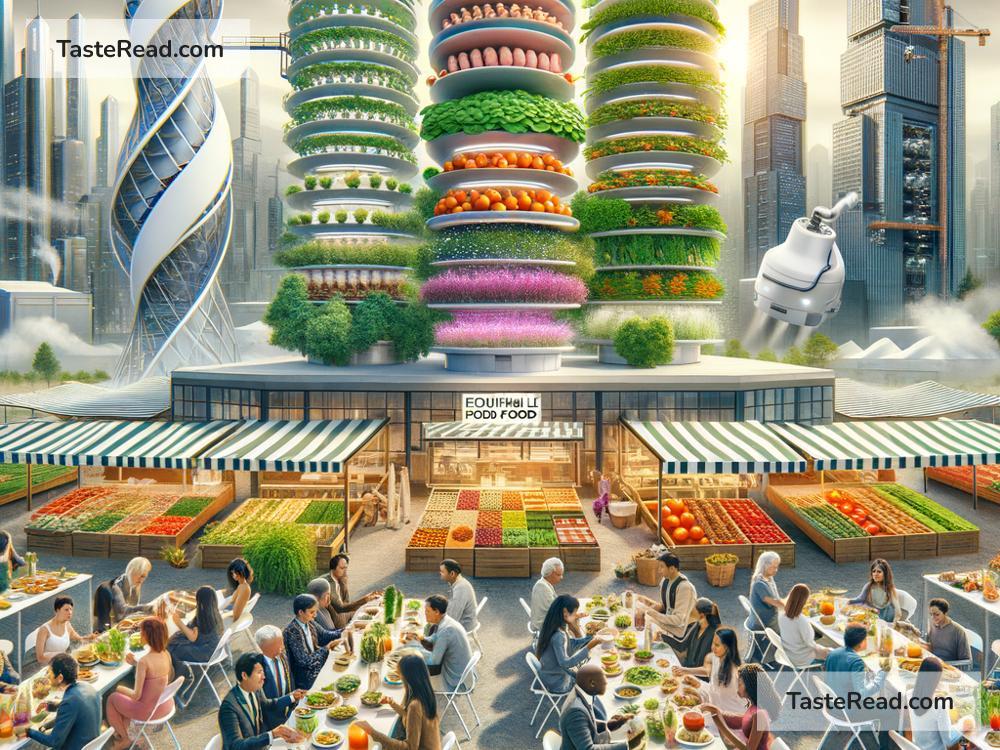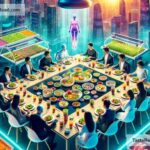The Future of Food and Human Rights: Building a Fair and Sustainable World
Food is one of the most basic human needs. It nourishes our bodies, fuels our minds, and keeps us healthy. Yet, millions of people around the world go hungry every day, while others have access to far more food than they need. As the global population grows and climate change reshapes how we grow food, the future of food and its connection to human rights is becoming more important than ever.
Why Food Is a Human Right
The United Nations recognizes food as a human right. This means that every person, no matter where they live or how much money they earn, should have access to enough nutritious food to live a healthy and active life. Food is central to human dignity. It supports our ability to thrive, to work, and to contribute to society. Without food security—consistent access to sufficient food—people cannot reach their full potential.
Despite this, hunger and malnutrition remain widespread. According to the World Food Programme (WFP), over 700 million people face hunger every day. This is not because the world lacks food. In fact, the world produces enough food to feed everyone. The problem lies in inequality—food isn’t distributed fairly, and many people don’t have the resources to buy or grow their own food.
A Changing World
As we look to the future, several challenges will affect how we produce and distribute food:
-
Population Growth: The global population is expected to reach nearly 10 billion by 2050. Feeding so many people will require innovative solutions and efficient use of resources.
-
Climate Change: Rising temperatures, unpredictable weather patterns, and extreme events like droughts and floods are making it harder to grow food. Crops are failing in many regions, and farmers are struggling to adapt.
-
Resource Scarcity: Water, land, and energy are all essential for agriculture. However, these resources are becoming increasingly scarce due to overuse and environmental degradation.
-
Food Waste: Nearly one-third of all food produced globally is wasted, either during production or consumption. Reducing food waste is crucial to ensuring enough food for everyone.
Technology and Innovation: Shaping the Future of Food
The future of food will depend heavily on technology and innovation. Scientists and engineers are working on new ways to produce food more sustainably and efficiently. Some of these developments include:
-
Alternative Proteins: Plant-based meats and lab-grown meat are becoming more popular and accessible. These alternatives require fewer resources to produce than traditional meat, and they can help reduce greenhouse gas emissions.
-
Vertical Farming: Instead of growing food on large pieces of land, vertical farming uses towers and indoor spaces to grow crops. This method is efficient and can work even in crowded cities.
-
Precision Agriculture: Using drones, sensors, and artificial intelligence, farmers can monitor their crops and soil more closely. This helps them use water, fertilizer, and other resources more efficiently.
-
Climate-Resilient Crops: Scientists are developing crops that can survive extreme weather conditions, like droughts or floods. These crops can help guarantee food production even in challenging environments.
While these innovations are exciting, it is important to ensure that new technologies are accessible to everyone, not just wealthy countries or corporations. Food is a human right, so advancements in agriculture must prioritize those who need it most.
Food and Social Justice: Fighting Inequality
The future of food is not only about technology—it is about fairness. Hunger is largely caused by poverty and injustice, with millions unable to access the food they need due to systemic inequality. Addressing these issues will require action at local, national, and global levels.
-
Ending Poverty: Poverty is one of the biggest barriers to food security. Governments, organizations, and communities must work together to create more economic opportunities for everyone.
-
Land Rights for Farmers: Many small-scale farmers don’t own the land they work on. Providing secure land rights can help farmers grow food and escape poverty.
-
Empowering Women: Women play a crucial role in agriculture, especially in developing countries. Supporting women with resources, education, and financial tools can lift communities out of hunger.
-
Fair Trade: Workers who grow and harvest food often earn very little for their labor. Supporting fair trade practices ensures that farmers and workers are paid fairly and can live dignified lives.
What Can We Do?
You might wonder, “What can I do to help ensure a fair and sustainable future for food?” Here are some ideas:
-
Reduce Food Waste: Be mindful about buying only what you need and using leftovers. Wasting less food helps protect resources.
-
Support Sustainable Practices: Choose foods that are grown in ways that protect the environment, like organic and locally sourced products.
-
Advocate for Change: Raise awareness about food insecurity and push governments to prioritize policies that fight hunger and inequality.
-
Help Locally: Volunteer at food banks, donate to charities, or support community gardens. Small actions can make a big difference.
A Shared Responsibility
Food is not just about survival—it’s about justice, equality, and the future of humanity. Ensuring a fair and sustainable food system where everyone can access nutritious meals is a shared responsibility for governments, businesses, and individuals. As we approach the future, we must work together to protect both the environment and the basic human right to food. When everyone has the food they need, we can build a world where all people can thrive.


